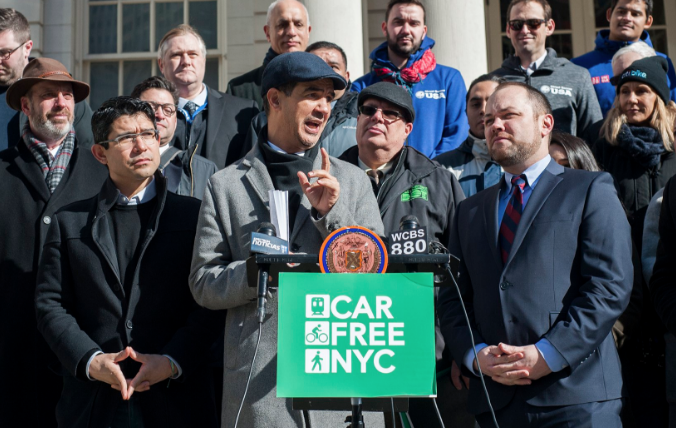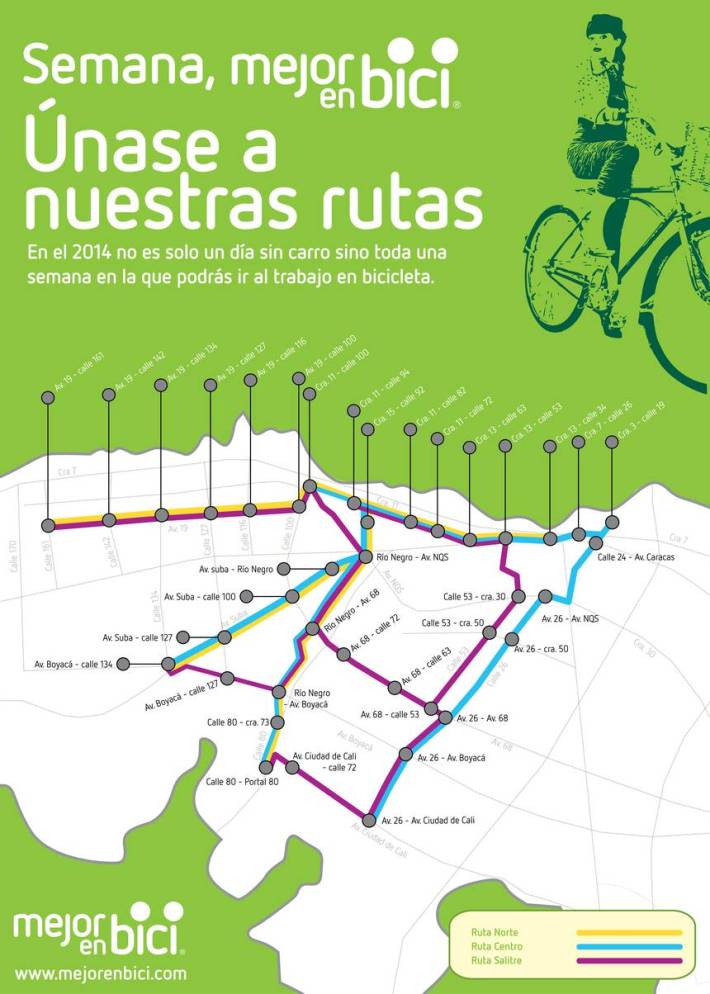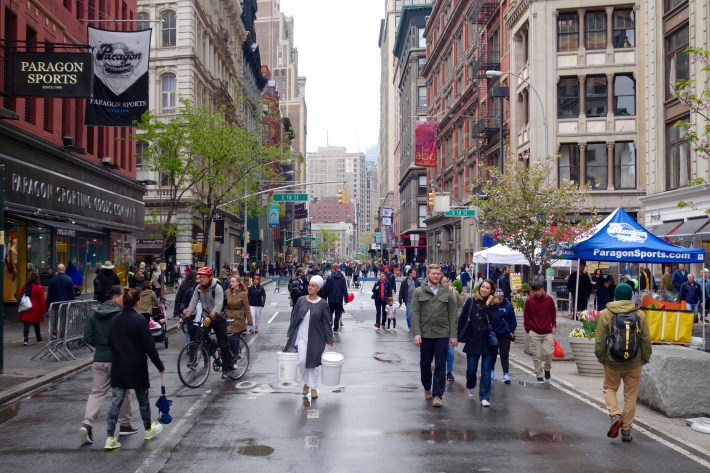City Council Speaker Corey Johnson joined transportation committee chair Ydanis Rodriguez on the steps of City Hall this morning to announce that New York's third annual "Car-Free Day" will be held on Saturday, April 21.
Car-Free Day is a fine event that suffers from being something of a political orphan. Mayor de Blasio has never embraced it and made it his own, and without mayoral backing it hasn't attained the scale of more notable car-free events around the world.
An accompanying press release today noted that the initiative "has grown every year," but the 2018 plans don't seem much different than last year. From 9 a.m. to 3 p.m., the city will open up Broadway from Union Square to Times Square, and St. Nicholas Avenue from 181st Street to 190th Street. There's no mention of the neighborhood car-free events that DOT scheduled concurrently with Car-Free Day last year in Astoria, Sunnyside, Brooklyn Heights, and Melrose.
We have an inquiry in with Rodriguez's office to see if there will be any additional car-free streets in 2018.
In other cities, mayoral enthusiasm has turned car-free day into a genuinely transformational event. In Bogota, the annual car-free day initiated by Mayor Enrique Peñalosa in 2000 is estimated to take 600,000 cars off the streets, as the whole city forgoes private motoring.
Recently Peñalosa implemented a variation on car-free day, setting aside a large network of streets where people can bike free from car-induced stress for eight days:
In Paris, Mayor Anne Hidalgo keeps expanding the scope of car-free day, which last year covered 40 square miles of the central city. The number of cars on Paris streets falls by as much as two-thirds on car-free days, and Hidalgo views the event as a way to communicate the potential for permanent changes to reduce traffic and change the transportation system.
In New York, de Blasio hasn't taken to car-free day with much enthusiasm, and there doesn't seem to be any incipient momentum for the City Council to join forces with the mayor and turn our version of the event into a launching pad for policies to reduce traffic and improve walking, biking, and transit.
Car-free day will be fun for everyone who can make it to Broadway or St. Nicholas, and it's a welcome gesture by the City Council. But the day after, New York won't be any closer to a low-car transportation system.








